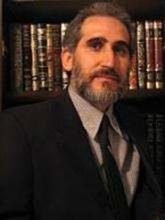What Is It
Some of the many topics discussed in Islamic philosophy are the Qur'an, knowledge, dreams, justice, poetry, reality, prophethood, peace, and the State. How has Islamic philosophy interacted historically with other philosophical traditions? How has philosophy influenced the popular practice and interpretation of Islam? When has Islamic philosophy melded with or clashed with Islam's religious teachings? John and Ken are joined by Mashhad Al-Allaf, Imam Khattab Chair of Islamic Studies at the University of Toledo and Author of The Essential Ideas of Islamic Philosophy and The Essence of Islamic Philosophy.
Listening Notes
Before diving into the discussion, John notes that Islamic Philosophy is philosophy developed under Muslim rule, not the philosophy of Islam. In other words, Islamic philosophy is a counterpart to Western philosophy, not Christian philosophy. With this clarification out of the way, Ken and John turn to guest Mashad Al-Allaf and begin exploring the effect of Islamic philosophy on Western philosophy.
Baghdad was a hotbed for Islamic philosophy in the 11th century, and during this time that Plato and Aristotle’s works were translated from Greek to Arabic. John asks Al-Allaf about the initial reaction of Islamic philosophers to Greek philosophies, what problems coalesced while Islamic philosophers were making sense of Plato and Aristotle?
Al-Allaf explains that the philosophical movement from the 8th to the 15th century was markedly open to translating texts from various traditions. Baghdad’s scholars included Muslims, Jews, and Christians and they were open to translating Greek works. Ken sharpens John’s question asking why this religious tradition felt compelled to translate these pagan authors. Al-Allaf replies that Baghdad’s thinkers were passionate about pursuing knowledge no matter from what tradition it came from. The Quran instructs mankind to question his surroundings—God grants knowledge about divinity through revelation while human beings must use reason to attain knowledge about the physical world. Because Islamic scholars were committed to seeking the truth, it didn’t matter that the Greeks were pagan.
Next, Ken John and Al-Allaf examine the connections between Al-Ghazili, a key figure in Islamic philosophy, and two western figures: Aristotle and Hume. Al–Ghazli, made several critical attacks on Aristotle, challenging his idea that God only recognizes universals—such as ‘Human’—and not individual people, which contradicts Islamic teaching that God knows everything. He also challenged Aristotle’s belief that the universe is infinite, because if God created the universe than God is infinite and the universe must be finite. John notes that Christian philosophers felt compelled to combat Aristotle on these very same issues.
According to Al-Allaf, Hume’s critique of causation was also anticipated by Al-Ghazali. In The Incoherence of the Philosophies, Al-Ghazali argued that cause and effect is an assumed relationship. People observe a certain action following another one, for example fire being applied to cotton and cotton burning, and then they assume that fire causes cotton to burn. Al-Ghazeli asserted that causation is not necessary, it I only habitually established in our minds. Therefore, it is not necessary to assume that cotton will burn in the future simply because cotton has burned on various occasions. David Hume made a similar critique of causation in the 18th century.
In the final segment of the episode, Ken, John and Al-Allaf delve into some contemporary Islamic thought. John notes that strands of scientific secularism dominate modern Western and Islamic thought and suggests that this philosophical commonality might help bridge the two cultures. Al-Allaf perceives the situation differently. According to him, finding a theological or intellectual common ground is not as important as finding sociological common ground—or establishing social ties and disregarding ideological differences.
- Roving Philosophical Report (seek to 3:57) Polly Stryker speaks to UCLA professor of Islamic and Iranian studies Hossein Ziai about the Academy of Philosophy in Baghdad.
- Sixty-Second Philosopher (seek to 48: 24) Ian Shoales whips through the history of Islamic philosophy.



